Many were honored at the University of Iowa’s annual Faculty and Staff Awards Banquet on Oct. 8, sponsored by the Office of the Provost and the Office of the Vice President for Human Resources.
Below, we list the recipients of the following awards:
- The Board of Regents Staff Excellence Award
- The University of Iowa Outstanding Staff Excellence Award
- The David J. Skorton Award for Staff Excellence in Service to the University of Iowa
- The Board of Regents Award for Faculty Excellence
- The Michael J. Brody Award for Faculty Excellence in Service
- The Lola Lopes Award for Undergraduate Student Advocacy
Iowa Now previously announced the recipients of the President and Provost Award for Teaching Excellence (Anton Kruger, Dan Matheson, Daniel Weeks, and Rachel Williams).
The Board of Regents Staff Excellence Award
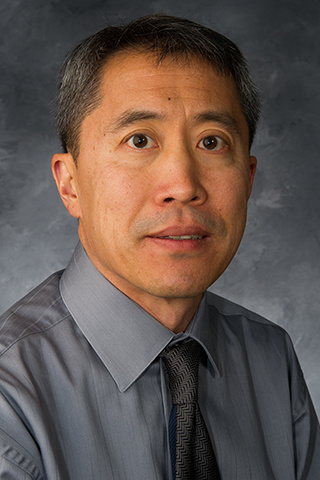
Eugene Buck, College of Liberal Arts and Sciences
Buck is the college administrator and facilities manager in the College of Liberal Arts and Sciences. He oversees construction, renovation, operations, and maintenance of more than 50 buildings, collectively housing over 1,000,000 assignable square feet of classrooms, teaching and research labs and studios, machine shops, performance spaces, and offices. He also manages replacement and acquisition of teaching equipment, from costume racks and lighting infrastructure in theater arts to spectrometers in chemistry. Buck has been involved in 11 major construction and renovation projects totaling over $500 million, as well as many smaller projects to expand and modernize our teaching spaces and to create research laboratories for new hires. Over the last eight years, he has played a variety of critical roles in the response to and recovery from the flood of 2008. He was instrumental in coordinating the evacuation of millions of dollars of equipment and materials as the waters rose and creating temporary homes for displaced units, and he has been working with departments, Facilities Management, and architects throughout the design and construction of our brand-new fine arts buildings.

Kayt Conrad, Division of Performing Arts, College of Liberal Arts and Sciences
Conrad is division administrator with the Division of Performing Arts in the College of Liberal Arts and Sciences. She directs a staff of over 40 individuals engaged in administration, production, finance, and marketing. She is active across the university, working on committees and offering her assistance, and she is engaged across the state through Arts Share and through an ongoing effort to connect the university with community colleges. For the past eight years, Conrad has supported the Division of Performing Arts as it recovered from the flood of 2008, which has involved multiple moves of entire units, departments, and schools. Conrad has also provided leadership to the Arts Living Learning Community in our residence halls, as well as the Performing Arts Division’s First-Year Seminars, for which she has recruited, scheduled, guided, and supervised five to six faculty members each year. She is also active in the community, including serving as vice president of the Iowa Cultural Corridor Alliance board, through which she can further strengthen partnerships between the UI and other organizations.
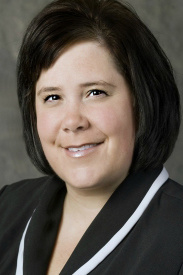
Kelli Delfosse, College of Engineering
Delfosse is director of engineering professional development in the College of Engineering, a unit for which she has held several positions, starting as a student employee in 1999. Delfosse supervises and mentors peer advisors, and she serves as the “go-to” person for corporate partners, faculty, staff, and student organizations. She manages two engineering career fairs per year, manages the College of Engineering internship and cooperative education programs, and collaborates with faculty to integrate crucial professional development skills into the curriculum. Delfosse also organizes two to three Lunch and Learn sessions per week during the academic year, featuring alumni and company representatives who share their expertise and experiences with students. She also serves as an advisor to the Theta Tau engineering fraternity and works with almost 30 student organizations. Last year, she initiated an annual student recognition banquet with each engineering student organization represented; awards were presented in 15 categories.

Carmen Langel, College of Engineering
Langel serves as director of development and communications with IIHR–Hydroscience & Engineering and is the managing director of the Iowa Flood Center in the College of Engineering. Among her duties are coordinating and submitting over 125 major grant and contract proposals per year, directing internal and external communications and outreach programs, budgeting for the Iowa Flood Center, and working closely with the IIHR and IFC directors on strategic planning and programmatic direction. This past year, Langel embraced the opportunity to be lead author for a major proposal to the Housing and Urban Development National Disaster Resiliency Competition on behalf of the State of Iowa, which was recently awarded over $96 million. Among her new outreach initiatives is the development of IIHR Currents, IIHR’s annual publication describing the institute’s research, education, and service programs. Langel has served as a thought leader at IIHR on several strategic initiatives to enhance graduate student recruitment and increase diversity in our student population, as well as to improve proposal development opportunities for faculty and research staff.

Shari Piekarski, Henry B. Tippie College of Business
Piekarski is assistant dean and director of student services in the Undergraduate Program Office of the Tippie College of Business. She has a dual role coordinating advising for over 2,300 students and managing the college’s international programs. Piekarski advises nearly 200 business students herself. In managing the college’s undergraduate advising services, her leadership is integral to providing excellence in service to all undergraduates who visit Tippie’s advising offices. One of her management responsibilities is training new advisors, and her efforts have boosted the quality of advising in the college. Ms. Piekarski is also responsible for the tremendous growth in Tippie’s international programs. To support internationalization, the college sought to supplement existing programs with courses taught by our faculty. Piekarski led this effort by launching a program in London, which has grown to become the college’s most successful study abroad program. She has also established an international internship program and provides oversight of the China May program, which this year will also be the catalyst for two alumni gatherings in an effort to build the college’s international alumni relations.
The University of Iowa Outstanding Staff Excellence Award

Douglas Eltoft, College of Engineering
Eltoft, chief technology officer for the College of Engineering, brings an enthusiastic and collaborative approach to providing the best possible service to students, faculty, and staff in the college and beyond. It was his vision that led to combining the college’s Electronics Shop, Machine Shop, and Computer Services under the umbrella of the Engineering Technology Centers, creating a number of synergies and benefits to better serve students. It is also largely thanks to his passion and leadership that engineering students and faculty have access to unique facilities such as 3-D scanners, rapid prototyping 3-D printers, and water-jet cutting equipment. He has been actively engaged with the broader technology community on campus for many years, and his ideas and efforts have helped lay the foundation for models that are essential to daily operations across campus today.

Teresa Gaffey, IIHR–Hydroscience & Engineering
Gaffey is director of finance and human resources for IIHR–Hydroscience & Engineering. Hired as a half-time editorial assistant and then promoted through several positions to her current role, she has been an IIHR staff member since 1994. She annually oversees more than $20 million in grants and contracts, using her comprehensive knowledge of accounting standards and systems—and of the terms of each individual grant or contract—to help principal investigators throughout the lifecycle of a grant. She is a highly respected member of the IIHR leadership team, a supportive and motivational supervisor to her staff, and a consummate professional whose dedication to excellent service and unconditional willingness to help is renowned throughout the institute and the college. Her contributions have created a better workplace for IIHR, the College of Engineering, and the university as a whole.

Nikole Mac, Office of Organizational Effectiveness
Mac, director of leadership development in the Office of Organizational Effectiveness, is exceptional at empowering staff members to find their strengths and use them to the best of their abilities. Since taking on her current role in 2008, she has fundamentally expanded the office’s emphasis on service and programming. She designed and implemented new Leadership Coaching programs, created a competency framework for campus leaders, organized a “development ladder” of training opportunities for leaders, and regularly contracts with departments to design and deliver Leadership Cohorts, which are opportunities for leaders in a department to come together as a team to create a culture of engagement and excellence. In FY16, she led the launch of two major new initiatives: the DEO Leadership Program, and the Executive Leadership Academy. She is currently serving as facilitator for the 2016–21 Strategic Plan Development Group.

Angela Reams, Office of the Dean of Students
Reams, assistant dean of students and director of student care and assistance, directly supports students in crisis, applying her extraordinary empathy and persistence to help them regain stability and fully participate academically and socially on campus. She created and oversees the On Call Dean Program, which trains professionals from across campus to help provide support and access to resources for students and families when crises occur outside normal operating hours. She co-directs the Early Intervention Team, which provides support for students who are struggling, and she is the “student lead” on the Threat Assessment and Care Team, to which she has contributed many creative (and successful) intervention options. She is currently overseeing a task force to identify how the university can better support students on the autism spectrum in their transition to campus.
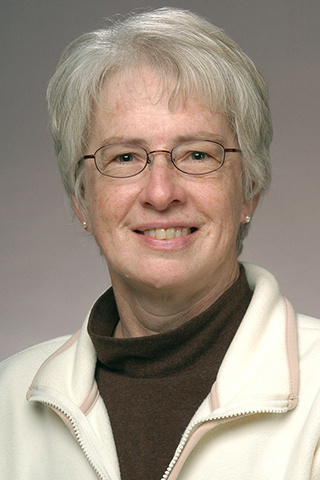
Sharon Seydel, College of Dentistry
Seydel, departmental administrative manager in the College of Dentistry, started as a secretary in the Dows Institute for Dental Research and was soon promoted to research assistant and project coordinator for the interdisciplinary Cleft Palate Research Program in the Department of Otolaryngology. During 20 years in that position, she contributed to more than $10 million of research funding and co-authored several key publications. As program associate for the Dental Student Research Program from 1989 to 2005, she helped the college gain recognition as a national leader in dental student research, earning the Education Research Group High Merit Award from the International Association for Dental Research. She currently oversees all grants and the day-to-day operations of the Dows Institute, where her guidance has helped the college bring in more than $30 million in research funding over the past five years.
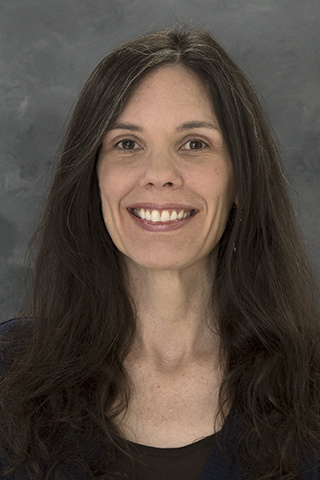
Kristina Yows, Office of the Provost
Yows, senior application developer in the Office of the Provost, has contributed to the quality and success of the office in a remarkable diversity of ways since joining it in 1991. Initially hired as a receptionist, her responsibilities quickly expanded and provost office staff came to rely on her for speech and report writing, editing, web page design, data management, application development, and other duties in response to emerging needs. She has contributed to and edited many high-profile university documents, including the university’s self-study for reaccreditation by the Higher Learning Commission, as well as multiple university strategic plans. She developed and manages a web-based application that many departments rely on to access a range of institutional data, and she recently helped lead the development of the university’s new Data Digest. She is a graduate of the Iowa Writers’ Workshop.
The David J. Skorton Award for Staff Excellence in Service to the University of Iowa
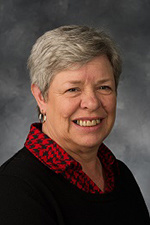
Suzanne Julich, University of Iowa Libraries
Julich, IT director for UI Libraries, has served on many influential university and Library committees, including Staff Council from 2012 to 2015. Professionally, she is nationally and globally engaged in library management systems and information discovery and delivery. As a principal officer for Ex Libris Users of North America (ELUNA)—a nonprofit organization that advocates for user needs in negotiations with the major library software and service vendor Ex Libris—she has traveled to many cities around the world representing the global user community and has been an outstanding ambassador for the university and the state. Recently, she spearheaded successful negotiation of a first-of-its kind agreement with the vendor to extend the UI’s favorable pricing to any college or university in Iowa, and she continues to provide leadership on a number of other Iowa-wide library projects.
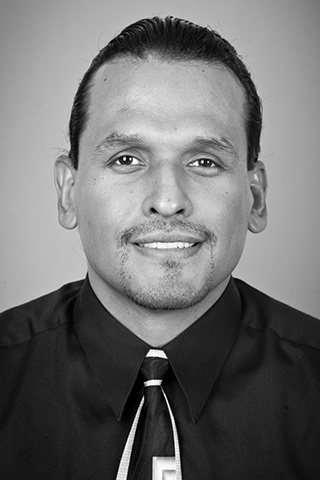
Roy Salcedo, Center for Student Involvement and Leadership
Salcedo is coordinator of multicultural programs in the Center for Student Involvement and Leadership, where he oversees four cultural and resource centers dedicated to providing a welcoming environment for underrepresented students. He also works closely with multicultural student organizations and has been integral in helping affinity student organizations such as the Black Student Union find financial resources. His leadership has led to the creation of new programming, such as the Cultural Centers and LGBTQ Resource Center Fall Open House, and significantly strengthened existing programs like the Rainbow Graduation ceremony, which has grown from a very small event held in 2000 to a vibrant, well-attended celebration today. He is a mentor and advocate for students who may feel marginalized on campus, helping them not only discover a community but also develop leadership skills and the confidence to create change.
The Board of Regents Award for Faculty Excellence

Ruth Bentler, Department of Communication Sciences and Disorders
Bentler is professor, chair, and director of graduate studies in the Department of Communication Sciences and Disorders; a world-class expert on hearing aid technology; and a tireless advocate for the use of best practices in the field of audiology. Her work has had a profound impact on the lives of individuals who wear hearing aids and on the way audiologists approach fitting those aids. Under her guidance as chair, the department has increased access for mentoring and created service-learning opportunities for undergraduates. Bentler spearheaded the creation of the department’s China Project, now in its 14th year, which brings faculty and students to Chinese orphanages and special-needs schools each May to provide screenings, training, and educational workshops. For more than 10 years, she has organized teams of faculty, students, and volunteers to provide screenings for athletes participating in the Special Olympics. She is a fellow of the American Speech and Hearing Association.
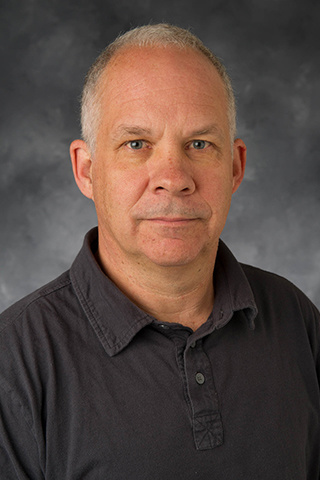
Colin Gordon, Department of History
Gordon is F. Wendell Miller Professor of History and a Collegiate Fellow in the College of Liberal Arts and Sciences. An extremely productive scholar focusing on 20th-century American public policy and political economy, he has also distinguished himself in the application of digital technologies to historical research, most notably in data visualization. He pioneered the use of Geographic Information Systems mapping to show the impact of various policies and practices on racial segregation in American cities. As senior research consultant at the Iowa Policy Project, he has written a number of reports on health coverage, economic development, and wages and working conditions, including the biennial State of Working Iowa series. His leadership was pivotal to the campus effort, completed in 2014, to win the Carnegie Foundation’s “engaged campus” credential. Gordon received the university’s Distinguished Achievement in Publicly Engaged Research Award for 2015.

Paul McCray, Department of Pediatrics
A professor of pediatrics, microbiology, and internal medicine in the Roy J. and Lucille A. Carver College of Medicine, McCray is one of the nation’s leading investigators in the area of the pathogenesis and therapy of cystic fibrosis in infants and children. His research has led to important discoveries about host–pathogen interactions in the lung and about the development of gene transfer for the treatment of inherited diseases. He teaches medical students, residents, and fellows in the UI Children’s Hospital and has supervised a long list of pre- and post-doctoral students, many of whom are now faculty at institutions across the country. He has served as interim director of the allergy, immunology, and pulmonary division of the Department of Pediatrics since 2010. He is also executive vice chair of the department and formerly served as vice chair for research. In 2013, he was elected to the American Association for the Advancement of Science.

Keith Mueller, Department of Health Management and Policy
Mueller, Gerhard Hartman Professor and head of the Department of Health Management and Policy in the College of Public Health, is one of the nation’s leading experts in rural health services and policy. His service to rural communities includes sitting on the board of the Iowa Rural Health Association (of which he was president in 2015) and working with the Iowa Hospital Association to provide guidance to Iowa hospitals. He has served as president of the National Rural Health Association and is a member of the National Advisory Committee on Rural Health and Human Services. As director (since 2000) of the Rural Policy Research Institute Center for Rural Health Policy Analysis, he has increased the center’s funding portfolio to create additional research opportunities for faculty, staff, and students. Under his leadership, the department has grown in numbers, reinforced its commitment to the success of junior faculty members, and implemented two new degree programs.

Jodie Plumert, Department of Psychological and Brain Sciences
Plumert is chair of the Department of Psychological and Brain Sciences and a Starch Faculty Fellow in the College of Liberal Arts and Sciences. A prolific researcher in the areas of cognition, perception, and developmental science, she has built a network of collaborators across diverse fields to develop innovative solutions to research challenges. Working with colleagues in computer science, for example, she uses immersive virtual environment technology to safely study how immature perceptual motor skills put child cyclists at risk. As department chair she has overseen the growth of one of the college’s largest departments, increased interdisciplinary emphasis in curricula and hiring, and helped build the psychology major into a cutting-edge opportunity for students. She currently serves on the editorial boards of the Journal of Experimental Psychology: Applied and the Journal of Experimental Child Psychology. She is a fellow of the Association for Psychological Science and of the American Psychological Association.
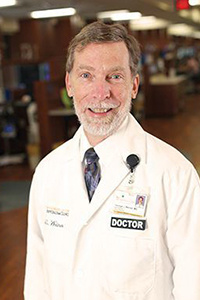
George Weiner, Department of Internal Medicine
Weiner is nationally known for his leadership of the Holden Comprehensive Cancer Center (HCCC), one of just 45 centers to achieve the National Cancer Institute’s Comprehensive Cancer Center designation. He was appointed director of the HCCC in 1999. He has also directed the Iowa/Mayo Lymphoma SPORE (Specialized Programs of Research Excellence) that has been continuously funded by the National Cancer Institute since 2001. Since 2003, he has served as president of the Iowa Consortium for Comprehensive Cancer Control—a statewide partnership dedicated to reducing cancer’s toll in Iowa. In 2014, he was elected president of the Association of American Cancer Institutes. A leader in interdisciplinary team science, Weiner chairs the external advisory boards of four other NCI-designated cancer centers. Weiner’s research focuses on cancer immunotherapy. His service to the college has had a tremendous impact on the research enterprise, clinical care, and preparing the next generation of scientists and clinicians.
The Michael J. Brody Award for Faculty Excellence in Service

Richard Fumerton, College of Liberal Arts and Sciences
Fumerton, F. Wendell Miller Professor of Philosophy in the College of Liberal Arts and Sciences, has demonstrated throughout his career at the University of Iowa an unyielding commitment to the well-being of the university and its students. Repeat requests for him to serve on university committees stem from his record of effectively moving dialog forward in a complex institution and from his ability to garner trust from all sides. He has served the Faculty Senate as senator and as president and stepped up twice to fill the role of past president when needed. He has served on five search committees for senior university officers and co-chaired four of them. He has served on a dozen committees for CLAS, including the Executive Committee, and in his department he has been director of graduate studies, acting director of the undergraduate studies committee, and departmental executive officer. He received the Regents Award for Faculty Excellence in 1997.

Alexandra Thomas, Carver College of Medicine
Thomas, professor of internal medicine in the Carver College of Medicine and of pharmacy practice and science in the College of Pharmacy, served as Faculty Senate president during a period of controversy and transition. In that role, she was able to engage the campus and help community members with conflicting perspectives find common ground and communicate effectively, both with one another and with external constituencies. Her prior service includes contributions to many other university and collegiate committees. She is a determined problem solver both as a university citizen and as a physician, seeking to improve “quality of life” for all concerned. Professionally, she is committed to improving the lives of patients with breast cancer and to advancing Iowa’s national distinction as a provider of cancer care. She speaks to many external groups about breast health and currently serves on several national cancer committees.
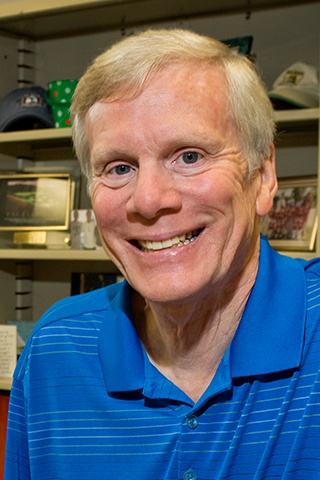
John Westefeld, College of Education
Westefeld, emeritus professor of counseling psychology in the College of Education, has accrued an extraordinary record of service to the UI and the larger community from the time he joined the faculty in 1991 through his retirement earlier this year. He served on the Faculty Senate, Faculty Council, Graduate Council, and CLAS Faculty Assembly. He has been a member of a long list of university-level committees, including the Presidential Committee on Athletics and multiple task forces and search committees. For nine years, he coordinated the large and vibrant Counseling Psychology Program. He is a fellow of the American Psychological Association’s Division 17 for Counseling Psychologists, and has held multiple service positions in the Division over the years, including president from 2009–10. He currently chairs the board of directors for the Iowa City Free Medical and Dental Clinic and previously served on the boards for the Ronald McDonald House, the Crisis Center, and the Iowa Center for AIDS Resources and Education.
The Lola Lopes Award for Undergraduate Student Advocacy
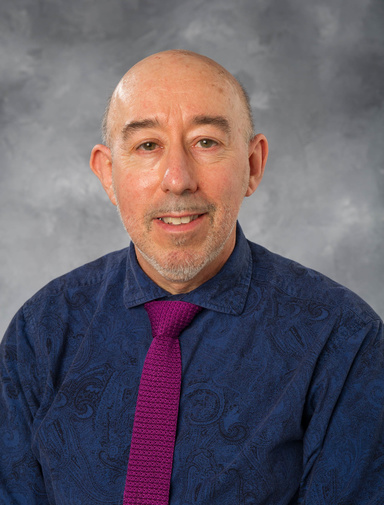
Scott Coffel, College of Engineering
Coffel is director of the Hanson Center for Technical Communication in the UI College of Engineering. Since joining the college in 2001, his leadership and initiative have transformed a single “technical communications coordinator” position into a thriving student support hub that serves all students in the college. A graduate of the Iowa Writers’ Workshop—following five years as a senior editor working with engineers at an international corporation—he has empowered thousands of engineering undergraduates to express themselves in writing that is not only correct but also thoughtful, ethical, and effective at communicating complicated concepts to a wide range of audiences. The center is widely recognized, on campus and off, as an invaluable part of the college’s mission to teach “engineering and something more.”